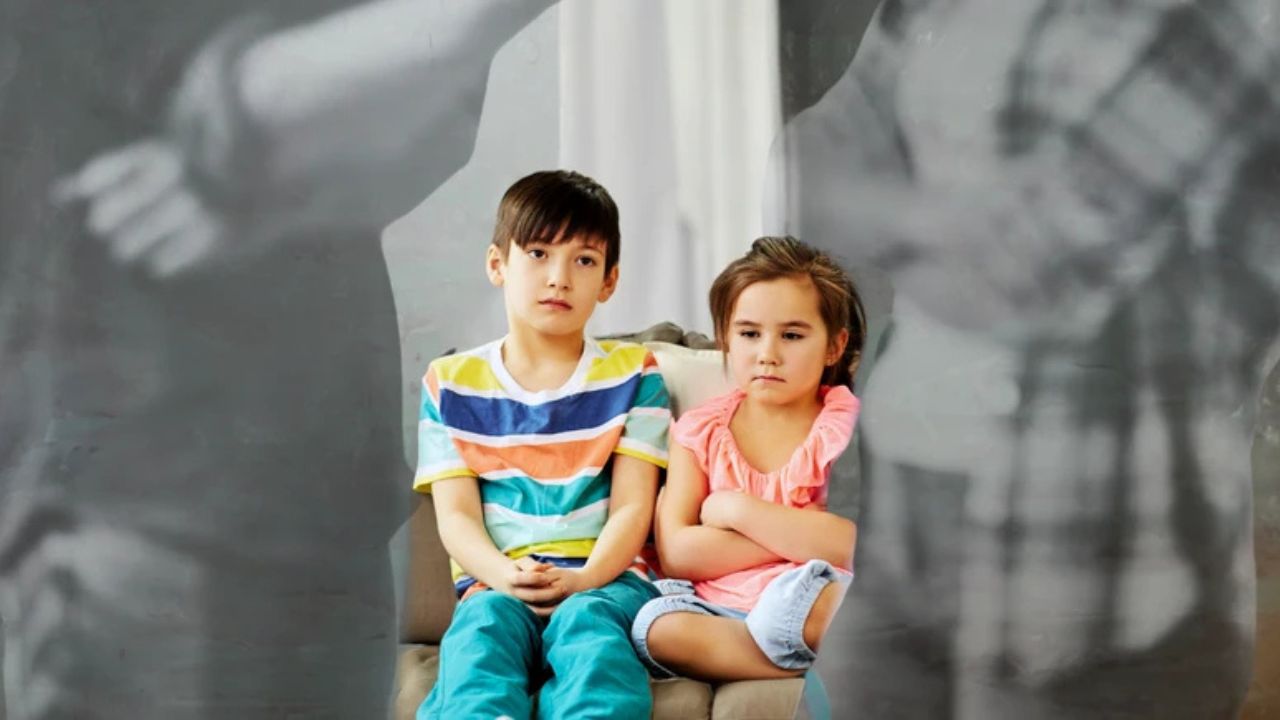As a parent going through a divorce, you might be dealing with a storm of emotions: sadness, anger, confusion, and, above all, worry about how your children are handling it.
It’s easy to get caught up in your own feelings and forget that your kids are facing their own unique struggles.
And believe me, they are. As someone who has been through it myself and has had many conversations with others in similar situations, it’s clear that divorce can be just as hard, if not harder, for kids.
They don’t always say what they’re feeling, and sometimes the things they don’t say are the most important.
Children of divorce often harbor feelings they don’t know how to express, feelings that could surprise you if only they had the words.
From guilt to anger, from confusion to fear, their emotional world can become a swirling mess.
They need their parents more than ever during this time—parents who can listen, guide, and reassure them that even though things are changing, they will be okay.
Here are nine things vulnerable kids desperately wish their divorced parents knew, straight from the heart.
1. They Feel Responsible
This one broke my heart when I realized it.
Kids, especially younger ones, can’t help but think that they’re to blame for the divorce.
I remember a tear-filled conversation with my daughter when she asked me if something she did had caused the breakup.
It was devastating to hear. Children may not always voice this guilt, but many of them carry it silently.
They might believe the divorce happened because of something they said or did, and without your reassurance, that feeling could linger for years.
As parents, it’s our job to make it crystal clear to our children that the divorce had nothing to do with them.
Tell them over and over again if necessary, until they really believe it.
Get Smarter Everyday Join Us On WhatsApp
They need to understand that the marriage ended because of issues between you and your ex, not because of anything they did.
The earlier they know this, the sooner they can begin to heal.
2. Their Bad Behavior Will Change
Divorce often shakes up a child’s world, leaving them feeling insecure, confused, and overwhelmed.
When my divorce first happened, I noticed changes in my daughter’s behavior.
She became more withdrawn, and when she wasn’t quiet, she was angry, sometimes lashing out over the smallest things.
For a long time, I thought it was just a phase, but it wasn’t.
It was her way of expressing her discomfort with the sudden shift in her life.
According to studies in child psychology, it’s common for children to act out or withdraw when they’re dealing with big emotional changes like divorce.
It’s their way of trying to cope with the pain.
Some might misbehave in an attempt to gain attention, while others may retreat into their own world of friends, schoolwork, or even fantasies, anything to escape the reality of their broken home life.
As parents, the best thing we can do is to be patient and provide them with stability. Understand that their bad behavior is not because they are “bad” kids.
It’s because they’re struggling. And with time, attention, and reassurance, that behavior will change.
3. They Feel an Overwhelming Sense of Loss
Losing a parent to divorce can feel just as traumatic as losing a parent to death for some children.
Even though both parents may still be alive, one of them is suddenly not around as much, and for a child, that absence can feel profound.
Get Smarter Everyday Join Us On WhatsApp
I remember my daughter asking me, “Why does Dad not live with us anymore?” There was a sadness in her voice that still haunts me.
Children may not express it openly, but they often feel abandoned by the parent who moves out.
And even if you try to explain that both parents still love them, the physical absence can leave a hole in their hearts.
Books like We’re Having a Tuesday by DK Simoneau can be helpful tools for families navigating this sense of loss.
But it’s also important for parents to look for nonverbal cues that indicate how their kids are feeling.
The loss may never fully go away, but with the right approach, you can help ease their pain over time.
4. They Probably Resent You
This one is tough, but it’s true. No matter how hard you try to shield your children from the ugliness of divorce, they may still harbor resentment toward you.
When one parent moves on with a new relationship or starts a new family, children may feel betrayed or abandoned.
I’ve seen it happen in my own family, and it’s not an easy thing to face.
As much as we want to believe our children will understand that life moves on, the reality is that they may not see it that way.
For them, the end of the marriage and the introduction of new partners can feel like a rejection of the family unit they once knew.
They might not say it out loud, but resentment can simmer below the surface.
The best thing you can do is give them time and space to adjust, while also reassuring them that they will always be loved and included.
5. They Hate When You Fight
Children love both of their parents. This simple truth can get lost during the chaos of divorce.
I’ll never forget the look on my daughter’s face when she overheard me arguing with her father.
Get Smarter Everyday Join Us On WhatsApp
She didn’t care who was right or wrong. All she knew was that her parents were fighting, and that hurt her deeply.
It’s crucial for divorced parents to remember that your children are still watching and listening, even when you think they aren’t.
Bashing the other parent or engaging in nasty fights isn’t going to win you any points with your kids.
In fact, it does the opposite. It only makes an already painful situation even harder for them to bear.
Children want peace. They want to feel safe and secure.
And when you and your ex are constantly at each other’s throats, it only makes them feel more anxious and insecure.
So for their sake, try to keep the peace, even if it’s hard.
6. They Need You to Listen
As your children grow older, they may become more reluctant to share their feelings.
I’ve noticed this with my own daughter.
It became harder and harder to get her to open up as she hit her teenage years.
But when she does share something, I know it’s important for me to stop what I’m doing and really listen.
In a 2020 study, researchers found that when children feel like their parents are truly listening to them, it strengthens the parent-child bond and helps them cope better with challenging situations.
Divorce is one of those times when kids desperately need to be heard.
So when your child does open up, drop everything and listen.
Get Smarter Everyday Join Us On WhatsApp
Don’t interrupt, don’t offer solutions unless they ask for them, just listen.
It might be hard to hear what they have to say, especially if it’s about the divorce or their other parent, but those conversations are crucial to their healing process.
7. They Aren’t Adults
It’s easy to forget, especially when your children seem mature for their age, but they aren’t adults.
They may act tough, but inside, they’re still just kids who need structure, boundaries, and reassurance that everything is going to be okay.
I’ve seen parents treat their children like mini-adults after a divorce, expecting them to handle big emotions and decisions that they’re simply not equipped to deal with.
It’s important to remember that your children have been through enough.
What they need now is stability, not added responsibilities.
No matter how chaotic things may feel for you, keep the adult issues between the adults.
Your kids don’t need to know about financial struggles, dating dramas, or custody battles.
They need to know that their world is still secure, and that no matter what happens, they can rely on you to hold it together.
8. They Need Routine
One of the most important things you can provide for your children after a divorce is a sense of routine.
Routine gives them a sense of normalcy and security in a world that suddenly feels unpredictable.
After my divorce, I made it a point to create new traditions with my daughter—something to look forward to even when everything else felt uncertain.
We had “girls’ day out” on Saturdays, and movie nights where we’d watch films that touched on themes of family and change, like Mrs. Doubtfire.
Get Smarter Everyday Join Us On WhatsApp
These activities gave her something to look forward to and helped us bond in the midst of all the changes happening around us.
Even if your children resist at first, routines will help them adjust to their new reality.
It shows them that life is still moving forward, and that they can depend on certain constants, even when so much has changed.
9. They Need Contact with the Other Parent
This might be one of the most overlooked aspects of divorce.
No matter how strained your relationship is with your ex, your children still need a relationship with both parents.
I was fortunate that my ex and I agreed early on that our daughter would have open access to both of us.
She could call or text either of us anytime, no questions asked.
I know this isn’t always easy, especially when emotions are high.
But denying your child access to their other parent, even unintentionally, can be damaging.
Kids need to feel like they can reach out to both parents whenever they need to. It’s not about you—it’s about them.
So, even if it’s hard, encourage that connection. They’ll thank you for it later.
Final Thoughts
Divorce is incredibly tough on kids, but it doesn’t have to define their lives.
As parents, we have the power to help them navigate this difficult time with as much love, support, and understanding as possible.
By keeping these nine things in mind, you can help your children adjust, heal, and ultimately thrive, even in the face of such a life-changing event.
Get Smarter Everyday Join Us On WhatsApp






